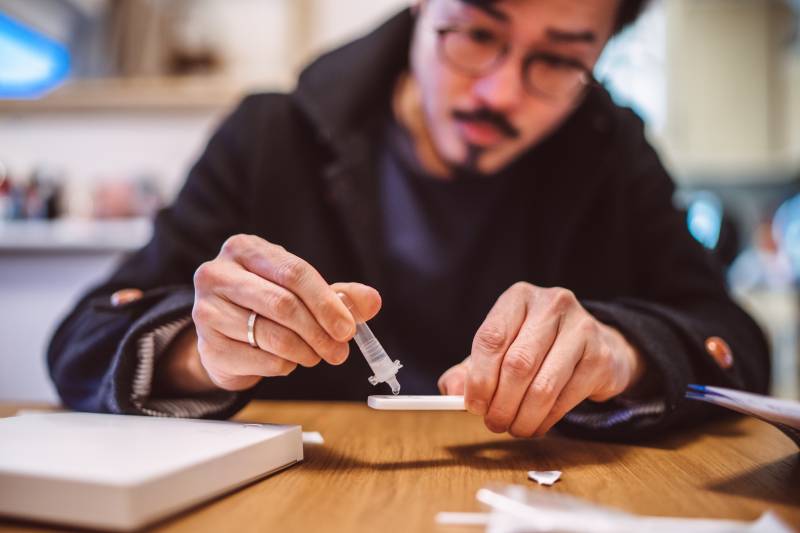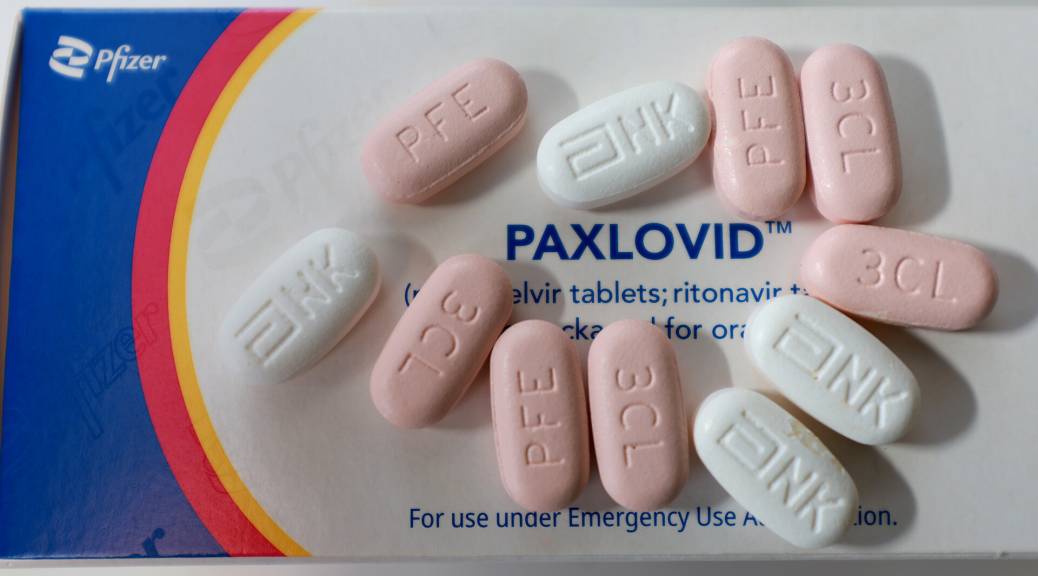Improving your sample collection for at-home tests will also improve your chances of getting an accurate result. For example, when swabbing the nostril, scrape the inner lining of the nose rather than just the snot and boogers hanging about. That’s why antigen tests generally recommend you blow your nose before swabbing.
“Make sure you’re not just swabbing snot but you’re swabbing the cells in your nose. You have to swab relatively hard,” Chin-Hong said.
Some but not all doctors recommend swabbing the inside of the throat also, especially if a sore throat is presenting as a symptom.
Also important when buying at-home tests is to make sure the tests have not expired (more on that below) and that they are not counterfeit. Most major pharmacies carry only FDA-approved antigen tests. If you’re not sure, check for a few indicators like misspellings or lack of an expiration date.
A full list of FDA-approved tests can be found here.
Can I still get free antigen tests anywhere?
There’s no getting around this fact: In 2023, finding free or low-cost antigen COVID tests is much harder than in previous years of the pandemic. And certainly, the days when packs of antigen COVID tests were given out for free are gone.
Here’s how to keep getting free or low-cost antigen tests:
Order your (last) four free tests from the White House via USPS
The White House website covid.gov/tests has been offering separate orders of free COVID antigen tests for each household during the pandemic. This program looks to be continuing after the federal public health emergency ended on May 11, but it’s unclear how much longer it’ll last. So if your household hasn’t ordered any free tests since Dec. 15, 2022, consider placing your order for another four free COVID tests ASAP — in case the program ends abruptly.
If you have health insurance, get eight antigen tests reimbursed per month
In other states, the recent end of the federal public health emergency for COVID means insurers no longer have to keep covering the costs of up to eight over-the-counter antigen tests a month.
But California has enacted laws that force insurers to keep reimbursing their members for the costs of eight tests each month (as well as Paxlovid). This also applies to people on Medi-Cal, but this is only in effect until Nov. 11. Read about how to get reimbursed for COVID tests by your insurer.
If you’re on Medicare Part B (medical insurance), you can keep getting eight free over-the-counter COVID tests after May 11. However, people on Medicare Part A (hospital insurance) have lost access to those free tests.
For free testing, consider getting a PCR test instead
PCR testing is more accurate than an antigen test — because it’s more sensitive at picking up traces of the coronavirus in your body — but it may take longer to get your results than with an at-home test, which could affect your ability to source a prescription for Paxlovid quickly (see below).
Currently, there are still some sites offering free COVID testing around the state; go to myturn.ca.gov/testing and apply the “Free Sites” filter from the drop-down menu. It’s not yet clear how many of these sites will continue operating in the coming months after the end of the federal public health emergency. If you have health insurance, you may be able to get a PCR test ordered by your health care provider with the costs covered.
For more ideas on how to find a free or low-cost COVID test near you, see the KQED guide.
Another key use for antigen tests: Getting Paxlovid in time
As of Feb. 2023, you no longer need proof of a positive COVID test to get a prescription for Paxlovid, the powerful antiviral COVID treatment.
But for it to be effective, health officials recommend starting a course of Paxlovid within five days of a positive test. This means it is still very important to take a test as soon as you suspect you have COVID — and a big part of that is having swift access to a test. Now that there’s no shortage of Paxlovid, the drug is no longer reserved for people most at risk of severe illness from COVID, and everyone is encouraged to contact a health care provider to see whether they qualify.


